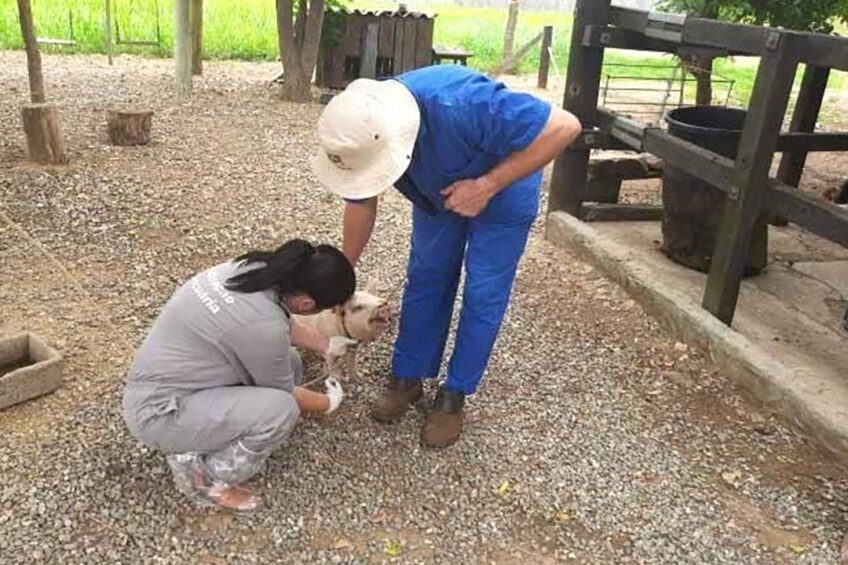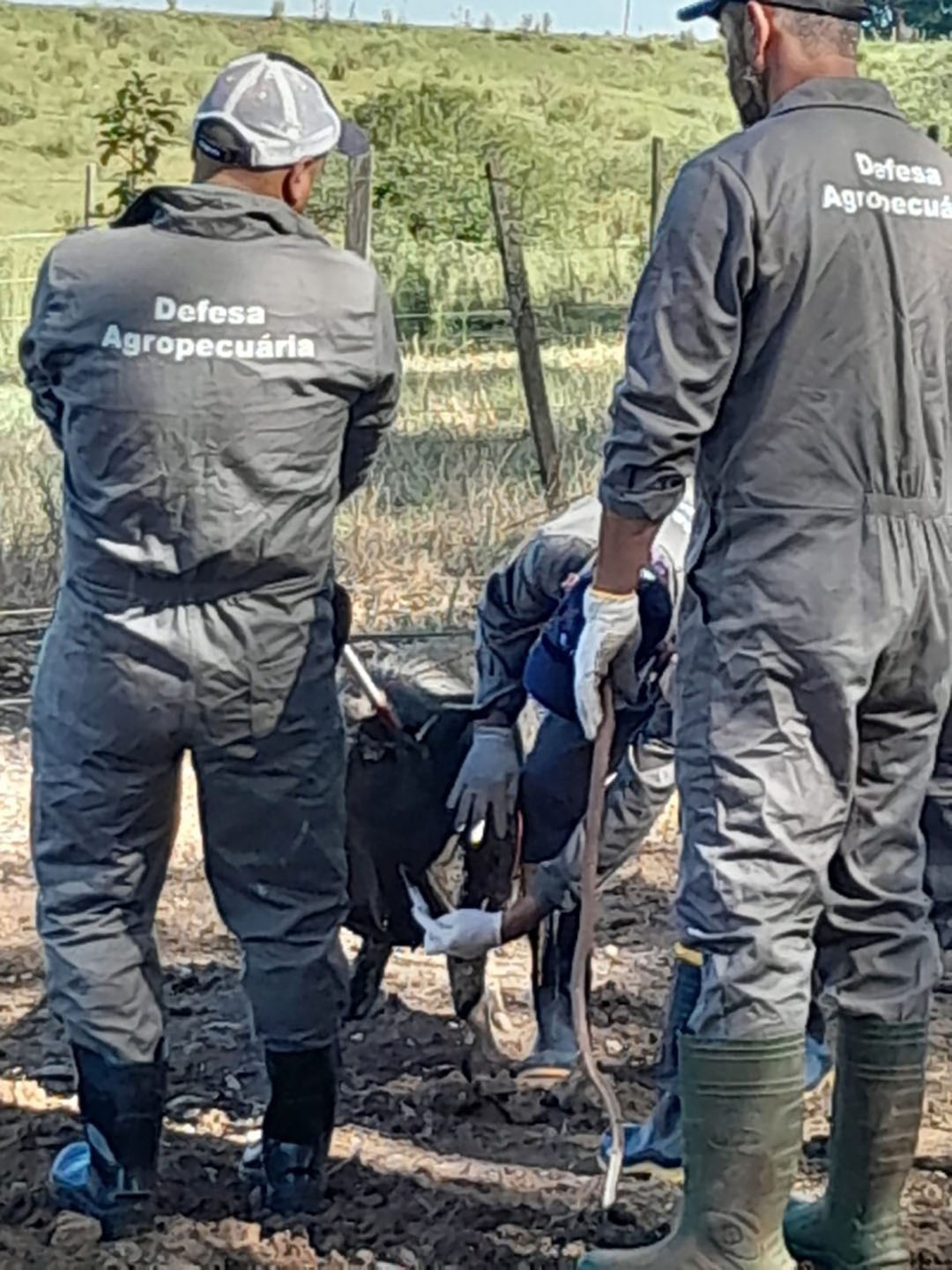First Aujeszky’s disease case in Brazilian pigs in 20 years

Brazil registered an Aujeszky’s Disease case in December 2022 on a pig farm in São Gabriel city, in the state of Rio Grande do Sul. Health authorities slaughtered 46 animals and are monitoring 200 other farms in the region. The previous outbreak in 2003 forced producers to slaughter 27,000 animals.
The illness, also known as “pseudorabies”, may restrict pork exports, but only in the same city as where the outbreak occured. São Gabriel has no industrial production or plant for pork processing. The state also does not export.
Samples
Federal and state authorities also collected more than 500 samples from pigs in the far west of the state. “We are still searching other properties that have pigs within a 5 km radius. Some of them hdid not register with the veterinary inspectorate”, says Rosane Colares, director of the state Animal Health Department.

Dormant disease
The Aujeszky’s Disease virus was dormant for almost 2 decades in Rio Grande do Sul. In 2003, a large outbreak caused the euthanisation of 27,000 pigs in the state.
According to the Brazilian Ministry of Agriculture and Livestock, Aujeszky’s Disease is caused by the herpes virus. In addition, it can also affect mammals such as cattle, sheep, goats, horses, dogs, cats, rabbits and wild mammals. All are considered final hosts.
Fortunately, there is no risk for farmers who are in direct contact with the animals. Consumers are also not at risk, because the virus is not transmissible to humans.
Symptoms
The Secretary of Agriculture states that all suspected cases must be reported to the official state veterinary service. Producers should be aware of clinical signs in pigs, mainly nervous or respiratory.
The disease affects the pigs’ central nervous, respiratory and reproductive systems, and can cause death. The main symptoms are fever, weight loss, tremors and loss of movement in the hind legs. Infected animals may have spots on the abdomen and excessive salivation.
Third largest pig producer in Brazil
The Secretariat of Agriculture of Rio Grande do Sul shows that the state produced more than 10.5 million animals for slaughter in 2021. According to the Socioeconomic Atlas, the state is the third largest producer of pigs in the country, behind Santa Catarina and Paraná.
For the president of the Pig Breeders Association of Rio Grande do Sul (Acsurs), Valdecir Folador, the episode was isolated and is far from the productive area of the state. The main producing regions are in the North, Northwest, Center, Vale do Taquari, Vale do Caí and Serra Gaúcha.
 Beheer
Beheer




 WP Admin
WP Admin  Bewerk bericht
Bewerk bericht